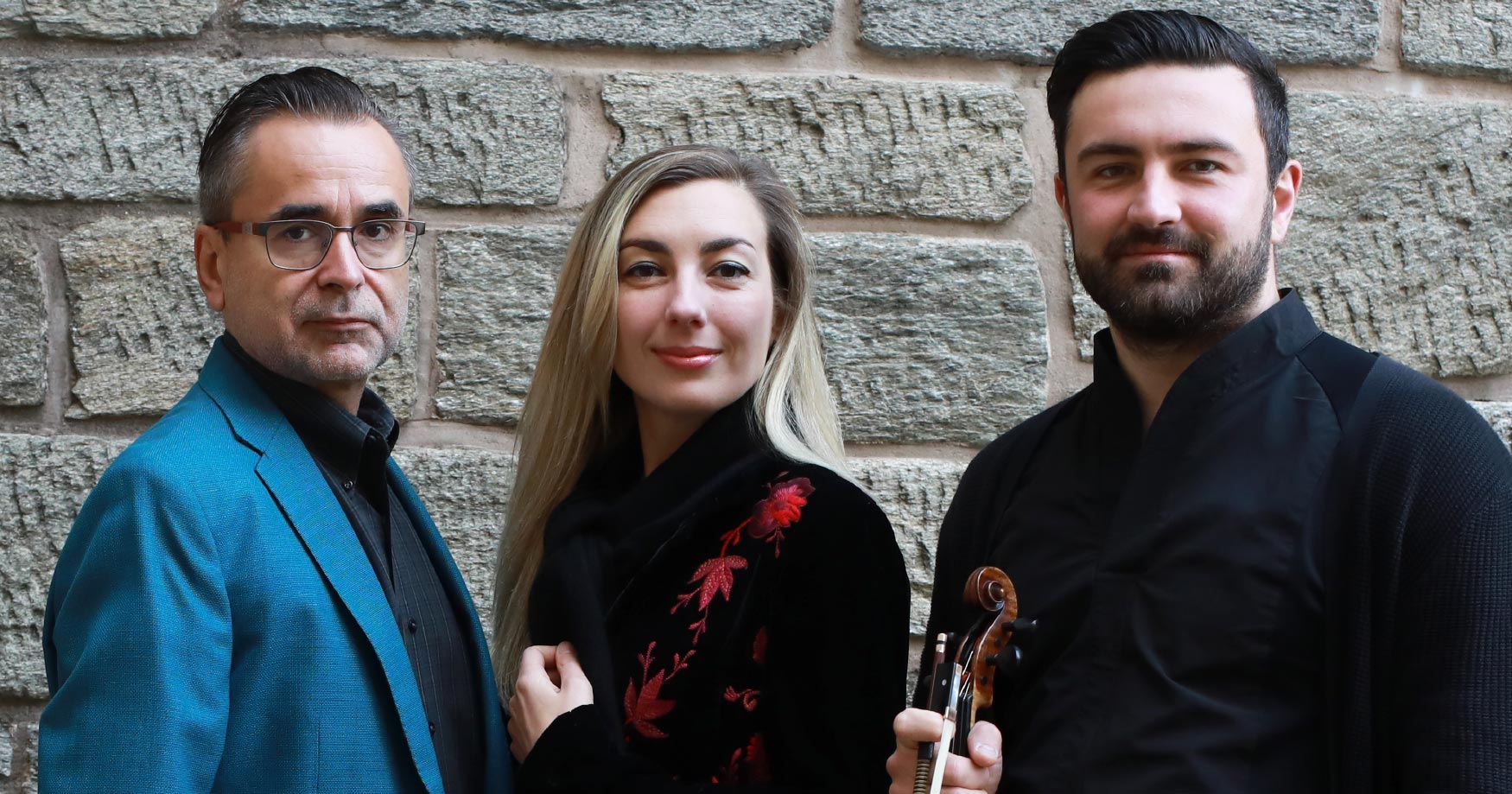A Musical Testament to Persistence – “Nevertheless” awarded Diamond Prize
July 26, 2025
Share this post:
To listen to TRIO CASALS perform “Nevertheless”

Bruce Babcock was awarded the Diamond Prize in the Original Composition category of the 2025 Season 2 Berlioz International Music Competition for his work “Nevertheless.”
Biography
Applauded by Aaron Copland, inspired by Desmond Tutu, and mentored by Hugo Friedhofer and Earle Hagen, Bruce Babcock has spent his working life composing music for the musicians of Los Angeles. Successful in both film and television, and the concert hall, he is known for vibrant, sonorous, expressive pieces that immerse audience and performers alike in an inclusive and exuberant celebration of the musical art.
Bruce holds B.A. and M.A. degrees in music composition from California State University, Northridge. While at CSUN, Bruce’s Impasse was performed for Aaron Copland during his 1975 residency. Copland’s comments on the piece, recorded for posterity, include “an impression of musicality which is very pleasant, indeed…a convincing sense of an overall mood…knows what he wants…sure of what he’s doing.”
In 2011, Bruce’s choral piece All Unto Me, composed for and inspired by Archbishop Desmond Tutu, was performed at All Saints Church, Pasadena, with the Archbishop in attendance.
His music has been performed and/or recorded by Grammy winners Gloria Cheng, Hila Plitmann, and The Crossing, in addition to Calvin Simmons, the Donald Brinegar Singers, Juliana Gondek, the Debussy Trio, the Antioch Ensemble, Pacific Serenades, the Artea Chamber Orchestra in San Francisco, the Kansas City Symphony, the Haga Motettkör of Göteborg, Sweden, the Space Coast Symphony, the Altius Quartet, the Sirius Quartet, the Armadillo Quartet, Lindsey Goodman, Ovidiu Marinescu, Anna Kislitsyna, Armen Ksajikian, Robert Thies, Doug Masek, James Walker, and Jonathan Mack.
Bruce’s music has been performed at Carnegie Hall, Boston Metro Opera, the Herbst Theater in San Francisco, the Santa Barbara Chamber Music Festival (as composer in residence), the Beverly Hills International Music Festival (three seasons), Schoenberg Hall and Royce Hall at UCLA, the Bing Theater at the Los Angeles County Museum of Art, the Rotunda at the Los Angeles City Hall, Mason Home Concerts in Los Angeles, on tour in China, and inside the dome of the 100-inch telescope at Mount Wilson Observatory near Pasadena, CA.
His concert music may be found on the Navona, Klavier, Centaur, and Mother Goose labels.
Bruce’s mentors in Hollywood included Hugo Friedhofer, Paul Glass, and Earle Hagen. He won an Emmy Award for Outstanding Individual Achievement in Music Composition for a Series in 1992, one of eight total Emmy nominations in a ten-year period, as well as eight TV/Film awards from BMI.
Could you share the inspiration behind “Nevertheless” and the message you hope to convey through it?
Why did I choose “Nevertheless” to be the title? Senator Elizabeth Warren, in 2017, as she was reading the words of Coretta Scott King on the Senate floor, was interrupted, and then ultimately forced to stop by Senate majority leader Mitch McConnell. He later remarked, “She was warned. She was given an explanation. Nevertheless, she persisted.” Countless women, regardless of their politics or place, felt that silencing, viscerally. “Nevertheless, she persisted” became an instant meme, connected to many women including Harriet Tubman, Malala Yousafzai, Beyonce, Emmeline Pankhurst, Gabby Giffords, Michelle Obama, Hillary Clinton, and Princess Leia. This piece is dedicated to the women who have shown great perseverance and carried on despite a global pandemic, a violent political insurrection, a war in Ukraine, and multiple mass shootings, not to mention attacks on women’s healthcare and voting rights. The music itself, in three movements, is unsettling, insistent, driven, and dissonant, with patches of repose in the second movement. The first and third movements are largely ostinato-based – a musical term referring to figure that is repeated multiple times, derived from the Latin obstinare – to persist. Unusual meters (5/8, 7/8, 3+2+3/8) and frequent meter changes add an unsettling dynamic to the proceedings. Nevertheless . . .
What was your creative process like while composing “Nevertheless”? How did you approach the structure and dynamics of the piece?
“Nevertheless” was composed specifically for Trio Casals. This piece marks my third collaboration with Anna Kislitsyna, my second with Ovidiu Marinescu, and my first with Alexandr Kislitsyn. Anna previously recorded my cello sonata with Ovidiu. She also recorded a piano sonata I composed for her entitled “Time and Again.” The third movement of this sonata, “Resolve,” has surpassed 1.3 million streams online. Alexandr is Anna’s brother and is the newest member of the trio.
Since the title is “Nevertheless,” and the theme is persistence, the ostinato became a prominent music device throughout the piece.
How did you collaborate with the TRIO CASALS for the music recording, and were there any memorable moments during the session?
The session was recorded at West Chester University, near Philadelphia, where Ovidiu is a professor. I live in California so we used Zoom for a video connection and AudioMovers for a high quality audio connection. I had worked with Anna and Ovidiu since 2018 and the PARMA recording staff since 2015, so we had a strong working relationship.
Would you like to share your experience participating in our competition and anyone you’d like to thank (such as mentors, collaborators, or supporters)?
I am fortunate to have had three outstanding musical mentors. Swiss-American composer of concert and film music Paul Glass, Oscar-Winning composer Hugo Friedhofer, and Emmy-winning prolific composer of music for television Earle Hagen.
Related Posts
July 1, 2025
Nevertheless, a piano trio written for TRIO CASALS, has won the Diamond Prize for Original Composition in the 2025 Berlioz [...]
June 10, 2025
20 years ago today! TWENTY! I was composer in residence at the 2005 Santa Barbara Chamber Music Festival, Daniel Kepl, [...]
